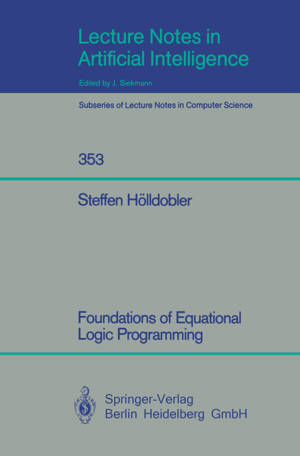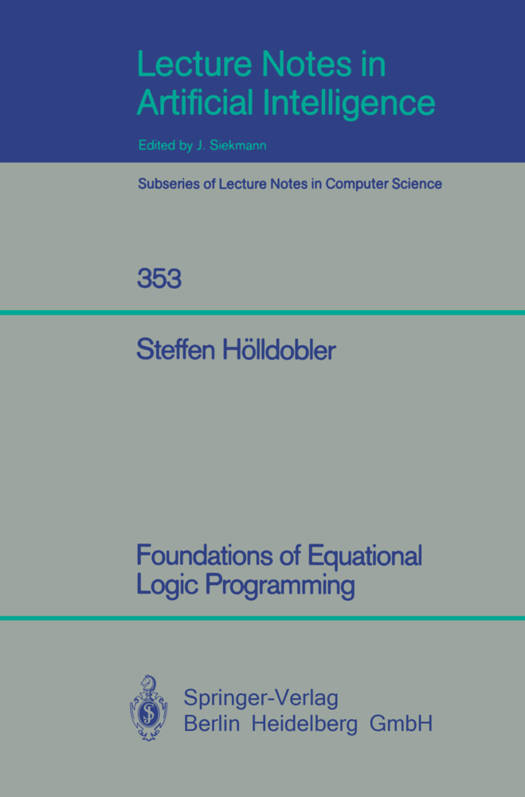
Bedankt voor het vertrouwen het afgelopen jaar! Om jou te bedanken bieden we GRATIS verzending (in België) aan op alles gedurende de hele maand januari.
- Afhalen na 1 uur in een winkel met voorraad
- In januari gratis thuislevering in België
- Ruim aanbod met 7 miljoen producten
Bedankt voor het vertrouwen het afgelopen jaar! Om jou te bedanken bieden we GRATIS verzending (in België) aan op alles gedurende de hele maand januari.
- Afhalen na 1 uur in een winkel met voorraad
- In januari gratis thuislevering in België
- Ruim aanbod met 7 miljoen producten
Zoeken
Foundations of Equational Logic Programming
Steffen Hölldobler
Paperback | Engels | Lecture Notes in Computer Science | Lecture Notes in Artificial Intelligence | nr. 353
€ 57,95
+ 115 punten
Omschrijving
Equations play a vital role in many fields of mathematics, computer science, and artificial intelligence. Therefore, many proposals have been made to integrate equational, functional, and logic programming. This book presents the foundations of equational logic programming. After generalizing logic programming by augmenting programs with a conditional equational theory, the author defines a unifying framework for logic programming, equation solving, universal unification, and term rewriting. Within this framework many known results are developed. In particular, a presentation of the least model and the fixpoint semantics of equational logic programs is followed by a rigorous proof of the soundness and the strong completeness of various proof techniques: SLDE-resolution, where a universal unification procedure replaces the traditional unification algorithm; linear paramodulation and special forms of it such as rewriting and narrowing; complete sets of transformations for conditional equational theories; and lazy resolution combined with any complete set of inference rules for conditional equational theories.
Specificaties
Betrokkenen
- Auteur(s):
- Uitgeverij:
Inhoud
- Aantal bladzijden:
- 256
- Taal:
- Engels
- Reeks:
- Reeksnummer:
- nr. 353
Eigenschappen
- Productcode (EAN):
- 9783540515333
- Verschijningsdatum:
- 11/10/1989
- Uitvoering:
- Paperback
- Formaat:
- Trade paperback (VS)
- Afmetingen:
- 156 mm x 234 mm
- Gewicht:
- 371 g

Alleen bij Standaard Boekhandel
+ 115 punten op je klantenkaart van Standaard Boekhandel
Beoordelingen
We publiceren alleen reviews die voldoen aan de voorwaarden voor reviews. Bekijk onze voorwaarden voor reviews.









